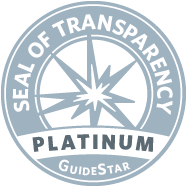MILITARY: Suicide rate confounding Marine Corps
'We have to get to the solution,' a top general says
By MARK WALKER - mlwalker@nctimes.com | Posted: Tuesday, May
18, 2010 8:16 pm
A steady rise in suicides is confounding Marine Corps
commanders, despite years of efforts to assure troops their careers
won't suffer for seeking mental health counseling, a top general
said Tuesday.
"We have to get to the solution," said Lt. Gen. Richard Zilmer,
deputy commandant for manpower and reserve affairs, during a
three-day conference on combat stress at the Town & County
Resort and Convention Center in San Diego.
"We are at the point where we need to take action. It won't get
any better with the status quo."
The Marine Corps' suicide rate has reached 24 per 100,000, a
rate that surpasses all the other services. The rate was 13 per
100,000 in 2006. The latest available figures put the civilian
suicide rate at 20 per 100,000.
So far this year, 14 Marines have killed themselves, including
seven with combat experience. An additional 72 attempted suicides
were recorded in the first four months of the year, according to
Bryan Driver, a spokesman in the Personal and Family Readiness
Division.
Last year, 52 Marines took their lives. Thirty-six of those
troops had seen combat, and 11 of the self-inflicted deaths took
place in Iraq and Afghanistan, Driver said.
Zilmer told about 1,000 Marines, sailors and mental health
specialists gathered for the conference that "understanding and an
appreciation for psychological health is one of the most important
revelations of the wars."
"We must do as much as we can to ensure the mental health of our
warriors," he said.
In a later interview, Zilmer said placing mental health
professionals with deploying battalions and training corporals and
sergeants to serve as mentors for combat troops have yet to pay
dividends.
"We are not satisfied with the results we are seeing," he said,
adding that commanders could point to no single factor.
Marines receive pre-deployment training about the risks of
combat and post-traumatic stress disorder, and couples and families
are counseled about the long separations that result from multiple
deployments.
"But we still see creeping rates of sexual assault, domestic
violence and suicide ---- all the lines are up, and that is
frustrating," said Zilmer, who headed Marine Corps forces in Iraq
from 2005-07 as head of Camp Pendleton's I Marine Expeditionary
Force.
The general said Marines need to know that men and women in
their ranks who have sought and received help for post-traumatic
stress disorder ---- often characterized by sleeplessness, social
disconnection and suicidal thoughts ---- have been able to rejoin
their units and win promotion.
Zilmer said the brass delayed a leadership assignment for a
senior officer who needed help. He was treated and later able to
assume the new post.
"That’s the kind of service we have to have today," Zilmer
said.
About 9,000 local Marines and sailors are in Afghanistan as part
of President Barack Obama's 30,000-troop surge that began earlier
this year. Military officials predict that about 1 in 5 will come
home with moderate combat stress or a fully developed case of
post-traumatic stress disorder.
One factor that can lead to those illnesses got its first
official airing Tuesday, as a group of military mental health
experts said "moral injury" is the least acknowledged form of
combat stress and needs further study and discussion.
They defined moral injury as something that goes against a
person’s fundamental beliefs. It also can result from justifiable,
but unintended, civilian killings, or witnessing or taking part in
battlefield transgressions, the researchers said.
"Many of the troops kill themselves because they feel that those
kinds of experiences have made them unforgivable," said Dr. William
Nash, a top PTSD researcher. "It's a lot harder for most people to
forgive themselves than to forgive others."
Several Marine Corps officers agreed with the concept of moral
injury, including Camp Pendleton Col. Pat Looney.
"Do I buy it? Hell, yeah," he said, suggesting that one of the
best ways to address it is through peer discussion within Marine
units.
The Rev. Michael Mangoian, a Vietnam veteran and Catholic priest
who works in Oceanside with troops who served in Iraq and
Afghanistan, said he believes moral injury manifests itself in one
distinct way.
"People will volunteer for multiple deployments when what
they’re really doing is going back to find the innocence they lost
on their first tour," he said, adding that in his view "they never
find it."
Call staff writer Mark Walker at 760-740-352
 A welcoming home for our Troops.
A welcoming home for our Troops.

